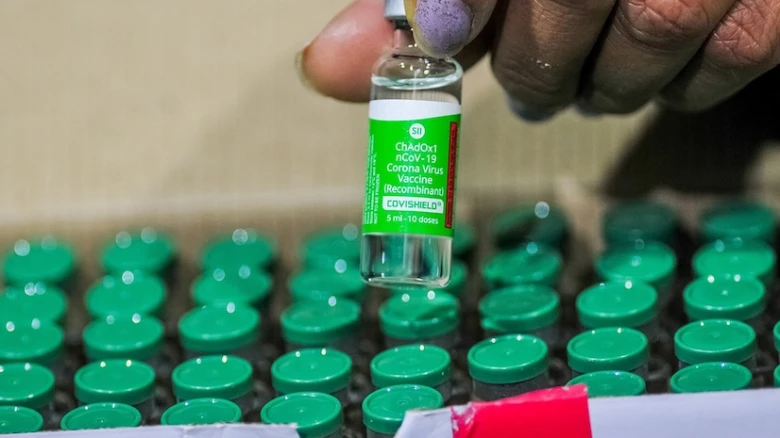Sports

The corporation acknowledges that the COVID vaccination may, in very rare instances, cause thrombosis with thrombocytopenia syndrome (TTS).
Digital Desk: AstraZeneca, the company that makes the Covishield vaccine for the Covid-19 pandemic, has admitted the inoculation has potential side effects.
The corporation acknowledges that the COVID vaccination may, in very rare instances, cause thrombosis with thrombocytopenia syndrome (TTS). This acknowledgment was made in a court document submitted to the High Court of Justice in London.
A UK pharmaceutical company and the University of Oxford worked together to develop the AZD1222 vaccine in 2020, during the height of the Covid-19 pandemic. The Serum Institute of India (SII) in Pune generated the vaccine that AstraZeneca commercialized in India under the brand name Covishield.
What is TTS?
It's a medical condition marked by low blood platelet counts (thrombocytopenia) and the development of blood clots (thrombosis). When a clot develops inside a blood vessel, it might potentially impede blood flow and cause thrombosis.
A lack of platelets in the blood is known as thrombocytopenia. In order to stop severe bleeding, platelets are vital to blood coagulation.
Unusual blood clots are a common complication of TTS, particularly in the belly or brain (cerebral venous sinus thrombosis). Vaccine-induced immune thrombotic thrombocytopenia (VITT) is another name for TTS.
What are the symptoms of TTS?
TTS symptoms can be rather severe. People who have severe or ongoing headaches, impaired vision, shortness of breath, chest pain, limb swelling, or ongoing stomach discomfort should be aware that TTS may be the cause. Easy bruising or tiny blood spots under the skin that extend past the injection site could also be signs of the illness.
The World Health Organization (WHO) designated TTS as a significant adverse event in 2023 after COVID-19 non-replicant viral vector-based vaccinations were administered. This covers the Johnson & Johnson (J&J) Janssen Covid-19 Ad26.COV2-S vaccination and the AstraZeneca Covid-19 ChAdOx-1 vaccine.
How did this come to light?
The Telegraph reported that AstraZeneca was the target of a class action lawsuit in the UK due to claims that its vaccination frequently caused fatalities and serious injuries.
Lawyers contended in court that a negative effect of AstraZeneca's Covid-19 vaccination had impacted multiple families.
Jamie Scott, who received the vaccination in April 2021, registered the first case in 2023. Scott claimed that he suffered from a permanent brain injury as a result of brain hemorrhaging and the formation of a blood clot shortly after receiving the AstraZeneca vaccination, which prevented him from working.
"The medical community has long acknowledged that vaccine-induced immune thrombocytopenia and thrombosis [VITT] was caused by the vaccine," stated Kate, Scott's wife.
Nonetheless, AstraZeneca notified Scott's attorneys in May 2023 that, generally speaking, they do not accept that the vaccine causes TTS.
AstraZeneca has acknowledged that their Covid vaccination "may, in very rare cases, cause TTS," despite refuting the accusations.
Scott's wife has stated that it took three years for the acknowledgment to come about and has sought an apology as well as just recompense for their family and any other impacted parties.
"The truth is on our side, and we're not going to give up," she declared.
How many cases have been filed against AstraZeneca because of the Covid vaccine?
As of the most recent report, 51 cases involving vaccine-affected persons and their families have been filed in the High Court. The plaintiffs are requesting compensation in the amount of up to 100 million UK pounds.
AstraZeneca informed the court in a February legal filing that their vaccination might, in rare cases, cause TTS. The pharmaceutical business did acknowledge that there is still no clear causative reason behind this event.
The vaccine is "defective," and its effectiveness has been "vastly overstated," according to the legal counsel for those who have filed lawsuits against the firm. AstraZeneca has denied the claims.
Leave A Comment